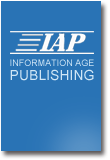
The New Other
Edited by:
Jude Okpala, University of Texas at San Antonio
Lemuel W. Watson, Kinsey Institute, Indiana University
Call for Chapters
This edited volume disrupts assumed notions of how we think of ourselves, our community, and our world. For example, the vast ideas that come to mind with the discussion of those who are underrepresented in society, whose voices have been ignored, “the Other”, often limit academic discourse to questions of race, gender, colonialism, sexuality and to the indictment of Western epistemology as a violent process of making meaning. Such a discussion implicates mainly dyads of the superior versus inferior, colonizer versus colonized, white versus black, heterosexual versus homosexual, and they could all be tabulated simply according to the exclusive way of understanding the world as “us versus them.” Accordingly, “the Other” is that one, or that group, who is subordinate to a dominant group, and who suffers the reductive labeling through which their identity is defined. Post-colonialism, race theory, feminism, for example, have engaged in the study of “the Other” and have built a formidable discourse against epistemic and cultural violence that stemmed from Western narrative. Yet, there are other ways “the Other” is created and exists, and often times through the agency, and equally neglect, of those privileged by postcolonial criticism, race theory, and feminism. This other ways of existing is critical in the context of globalization through which the world is becoming smaller; it is critical also because the new way “the Other” exists is being overshadowed by the traditional understanding of “the Other” as a subordinated group. To distinguish this group, we have called them the “New Other.” They are not essentially a product of colonialism or white supremacy, but are tragedies caused by neglect or by principles designed only to perpetrate suffering. The “New Other” in this case is les miserables of the world, namely, the widow in Africa, the young girls forced into marriages across the world; the young girls trafficked for sex across the world; the unemployed youth in Africa resorting to crime; the poor people in the villages of the third world; the poor southern white men in the United States; refugees crossing borders all over world; the aging members of the society fighting to maintain their human value; the Muslim girl seeking education; and the transgendered individuals who wants to build a safe life. This list is not exhaustive.The volume draws on the perspectives of individuals from around the world who witness and engage with individuals who are invisible in their day to day lives. The various chapters, therefore, are a collection of work that brings into our consciousness the responsibility we have as professionals and scholars from multidisciplines to ask difficult questions about our collective humanity. The various chapters move beyond the status quo of typical verbal about social justice, equity, and equality. Like aspen trees by a river, even though they are many, they are from the same root system. To ignore members of our society, be it next door neighbor or a community across the world, is to eventually bring damage to our collective selves.
It is true that some contemporary narratives have championed the case of the New Other; yet, their realities still need deep analysis and presence among the popular discourse in the academy; by bringing them into such conversation, we will rescue and hear their voices. We are inviting papers from all disciplines that can explore them. We welcome original texts from the New Other themselves. In this connection, we encourage both qualitative and quantitative research methodologies, especially ethnographic studies of the New Other.
Abstract Submission:
Please indicate your intention to submit a paper by submitting an abstract of up to 500 words with the following information: Title, Author and affiliation, Purpose, Rationale, Methods, Finds, Conceptual framework (if this is part of the study).
Topics of interest
In thinking about the “New Other,” you can address these questions:
• Who are the New Other in your community, and how do they exist today?
• Who are the marginalized group in your community, and how are they marginalized? How does their marginal position restrict their access to quality life?
• How does child marriage impair or improve the lives of young girls?
• What is the plight of widows in Africa?
• What is self-identity in the context of human trafficking and sex-trafficking?
• What is the emergent culture as a result of the migration across borders?
• How does the poor Southern white men live in the context of the larger United States? What are the factors to such existence?
• What is the nature of existence among the refugees in their new home?
• What is the narrative about underground sexualities in your community? How do they exist in the context of the dominant practice?
Acceptance:
Authors will be notified within 2 weeks of submission with an acceptance letter and manuscript guidelines.
Publication Schedule:
Author Abstract Submission Deadline: November 1, 2020
Draft Submission Deadline: January 1, 2021
Final book submitted to publisher: March 31, 2021
Send Abstracts and Inquiries to: Jude Okpala at jude.okpala@utsa.edu or Lemuel W. Watson watsonlw@mailbox.sc.edu

